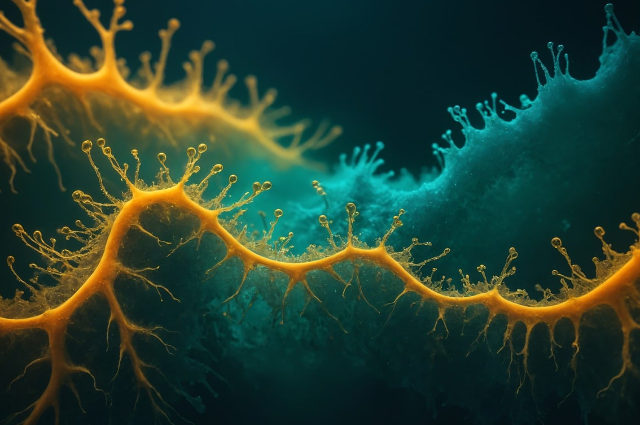
Image by ymyphoto from Pixabay
In the middle of human results, we frequently admire nature's grand spectacles—tall mountains, vast oceans, and beautiful forests. However, there is an unseen world underneath us, teeming with minute life forms that escape our naked vision. These seemingly insignificant bacteria are our planet's unsung heroes. Their role in determining life on Earth has been both fascinating and significant, a quiet drama that deserves our attention and gratitude.
The Foundation of Life
Microorganisms have been around for billions of years and predate even the smallest multicellular organisms. As Earth's first inhabitants, they laid the groundwork for contemporary life. Cyanobacteria, for example, were responsible for the massive oxygenation event that happened 2.5 billion years ago, changing the Earth's atmosphere and preparing it for more complex life forms. Without photosynthetic activity, oxygen-dependent animals like humans would not exist.
But their contribution goes beyond oxygen production. Microorganisms contribute significantly to nutrient metabolism by breaking down organic matter into simpler molecules that replenish the soil. The reuse process is critical for plant development and helps agricultural systems that feed billions of people.
Microorganisms and Human Health
The link between microorganisms and humans is complex and multidimensional. While some are pathogenic, causing diseases like tuberculosis and malaria, the vast majority live quietly alongside people. Our bodies contain trillions of bacteria collectively known as the microbiome.
These microbes promote digestion, synthesize essential vitamins, and can even influence mental health by interacting with the brain via the gut-brain axis. New research shows that maintaining a healthy microbiome can help prevent disorders ranging from depression to obesity, highlighting the complicated relationship between these microscopic animals and our general health.
Innovations Inspired by Microorganisms
Microorganisms captivate scientists while also motivating and propelling innovation. Consider the following example. Alexander Fleming developed penicillin, which revolutionized medicine and saved millions of lives. This antibiotic derived from Penicillium moulds demonstrates microorganisms' tremendous promise in healthcare.
Bacteria have boosted biotechnology and medical applications. The CRISPR-Cas9 system, which is today used in genetic engineering, originated as a bacterial immune mechanism. This method allows scientists to change genes with extraordinary precision, which has huge implications for treating genetic diseases and generating personalized medicine.
Guardians of the Environment
Microorganisms are valuable friends in the fight of threats from the environment. They are the universe's cleanup crew, breaking down pollutants and restoring habitats. Certain yeast, for example, may degrade oil, making them incredibly effective in preventing leaks. Similarly, microorganisms aid in the cleanup process by converting dangerous substances into harmless byproducts.
Recent study has also investigated the potential of microbes in fighting climate change. Methanotrophic microbes, which consume propane, may help to reduce the emission of greenhouse gasses. Meanwhile, cyanobacteria as well as algae are being explored as biofuel people, with the goal of offering a long-term alternative from fossil fuels.
Microorganisms in Space Exploration
Microorganisms are following humans on their trip beyond Earth. They are being investigated for their ability to support life in space, from the production of food and oxygen to the recycling of trash. NASA and other space organizations are investigating the use of microbial ecosystems in closed-loop life support systems for long-term missions.
Furthermore, extremophiles, which are microorganisms that flourish in harsh environments, provide evidence for the potential of extraterrestrial life. Scientists acquire insights into how these tough organisms live in conditions such as deep-sea hydrothermal vents and Antarctic ice.
The Ethical Considerations
While microbes provide unquestionable benefits, their manipulation presents ethical concerns. The emergence of synthetic biology, in which germs are made for specific purposes, raises both opportunities and concerns. Misuse of this technology may have unintended consequences, such as the production of toxic bioagents or ecological problems.
Balancing creativity with caution is critical. As stewards of the environment, we must ensure that our use of microorganisms is consistent with ethical beliefs and sustainable practices.
A Call to Action
Despite their importance, microorganisms are often overlooked in discussions about biodiversity and conservation. Microbial ecosystems demand the same level of protection as forests and wildlife. Policies addressing soil health, pollution, and antibiotic resistance can all help to save these vital species.
Education has a tremendous impact. By promoting awareness of the importance of microorganisms, we may inspire the next generation to appreciate and research this hidden world. Simple initiatives, such as restricting antibiotic use and supporting sustainable farming methods, can have a big impact.
Conclusion
Microorganisms support life, heal ecosystems, and drive innovation. They serve as a reminder that even the smallest of entities can have a significant impact. As we confront today's difficulties, let us not forget about these silent guardians. They are more than just a part of nature; they are its fundamental foundation.
By embracing microbes' strength and potential, we can solve some of humanity's most pressing challenges and design a future that embraces and exploits the glories of the little world.
